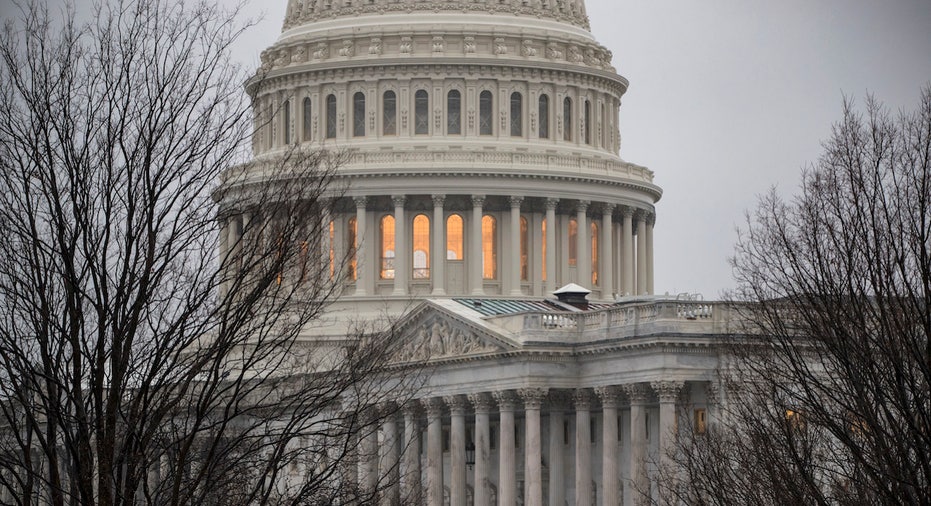Senate Sets the Stage for Obamacare Repeal

The Senate on Wednesday will vote well into the night on a series of measures tied to a budget that Republicans plan to use to repeal the Affordable Care Act.
Starting around 6 p.m. EST, the Senate will begin taking a blizzard of amendment votes in an occasionally used process known as a "vote-a-rama." The late-night slog will end in a vote on whether to pass a budget resolution that would instruct several House and Senate committees to write measures to repeal parts of the 2010 health law.
Budget resolutions are considered in the Senate under unusual rules. Most bills need 60 votes to clear procedural hurdles, but budgets need only a simple majority to pass. That enables Republicans, who hold 52 seats in the Senate, to use the budget to advance certain measures that have no Democratic support.
The budget resolution expected to pass the Senate late Wednesday night or early Thursday morning, and on Friday in the House, will include instructions to two House and two Senate committees to come up with plans by Jan. 27 for repealing parts of the health law.
Those plans will be folded into legislation, known as a reconciliation measure, that can pass both the House and Senate with limited debate and a simple majority in each chamber.
Because the process for passing a budget resolution makes life easy for the party in the majority in the Senate, it also offers some protections for the party in the minority. Most important: any senator can require a vote to be held on any amendment the lawmaker chooses to offer. The Senate has already voted on a few health-care amendments this week, but it will dig into a longer list Wednesday night.
Sen. Rand Paul of Kentucky is expected to be the only Republican to oppose the budget, which covers federal spending for the rest of the current fiscal year. He has objected to its spending levels. Most Republicans say this budget is aimed at repealing the health law, and they will focus on lowering spending levels when they write the fiscal year 2018 budget in the spring.
Total debate on the budget is limited to 50 hours, but that doesn't count against the time lawmakers need to offer amendments. To convince lawmakers to stop proposing amendments, Senate leaders must essentially wear them down.
The strategy boils down to keeping lawmakers up so late that eventually everyone is too tired to go on. Then, the Senate finally passes its budget and calls it a day.
In the past, then-Senate Majority Leader Harry Reid occasionally resorted to requiring lawmakers to remain at their desks in the Senate chamber to prevent them from wandering off and slowing down the pace of voting.
Many of the amendments that could come up Wednesday night are attempts by one party to force lawmakers from the other to take uncomfortable votes.
For instance, Sen. Tammy Baldwin (D., Wis.) introduced a measure this week that would prohibit the Senate from adding to the federal budget deficit over 10 years if it repeals the health law.
That is a tricky issue for Republicans, who are divided over when to repeal the health law's taxes. Many want to gut the law, but repealing many of its taxes would add to the deficit and eliminate a source of revenue needed to pay for a two- or three-year transition, during which Republicans would try to devise a new health-care system. Most Democratic amendments are unlikely to pass the GOP-controlled chamber.
Because the budget resolution is nonbinding, most amendments are symbolic. But measures directly aimed at drafting the reconciliation legislation that would be used to repeal the health law could affect that process.
One amendment to watch is a measure from five GOP senators that would delay the deadline for pulling the repeal bill together to March 3 from the current Jan. 27, to give lawmakers more time.
"We want a deliberative process," said Sen. Bill Cassidy (R., La.), who supports the amendment.
The Senate is also expected to vote on a measure from Sen. Bernie Sanders of Vermont, the top member of the Democratic caucus on the Budget Committee, which would allow the U.S. to import FDA-approved medicine from Canada and other countries.
"We are the only major country on earth that does not have a national health-care system," Mr. Sanders said on the Senate floor Wednesday. "As part of that problem, we are the only major country not to negotiate drug prices with the pharmaceutical industry."
President-elect Donald Trump said at his press conference Wednesday that the pharmaceutical industry is "getting away with murder" and that his administration would "start bidding properly" with it.
Senate Budget Democrats will be posting updates on the amendments throughout the night.



















